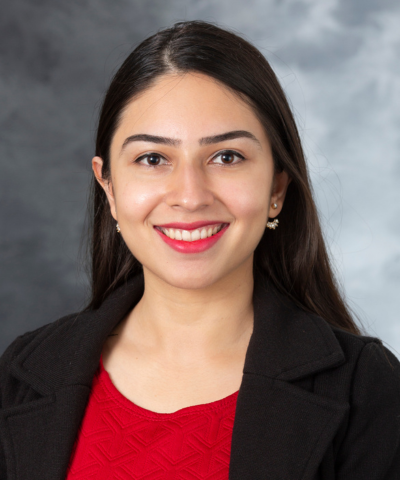
Introduction
Dr. Mahnoor Khan, PharmD, is a dedicated and compassionate pharmacist committed to providing exceptional patient care. With a strong background in emergency medicine, she brings a wealth of knowledge and experience to her field. Dr. Khan is known for her patient-centered approach, ensuring that every individual receives personalized and evidence-based treatment.
Why Pharmacy
As a Biochemistry and Molecular Biology major during my undergraduate studies, I knew I wanted to be a part of the healthcare team and serve as a resource for other healthcare professionals and patients. Pursuing a doctorate in pharmacy allowed me to build upon my knowledge and explore different areas within the field to find the right fit for me.
Career Journey
Through multiple shadowing experiences and excellent mentorship, realized I wanted to work in an academic medical center in emergency medicine. After pharmacy school, I completed two years of residency training to help me achieve this goal. Practicing as an emergency medicine pharmacist embodies all the reasons I chose pharmacy: I get to work with a wonderful interdisciplinary team where my patient care recommendations are valued and I get to take care of very sick patients during some of the most difficult times in their lives.
Current Role and Responsibilities
One of the things I love about my job is how every day is different - both in terms of the disease states I see and the level of acuity. While some might find the lack of structure a bit overwhelming, I enjoy going with the flow and helping out where I am needed in the emergency department. I get to compound medications at bedside for emergent needs, help select the appropriate medications and doses for critically ill patients through discussions with the team, serve as a member of the stroke, trauma, STEMI and code blue teams, and be a resource for questions regarding medications.
Challenges
While successful resuscitations feel rewarding and reinforce the dopamine, the ones that do not end with the desired outcome can be emotionally taxing - especially when the patient's family is present in the room with us. I try to focus on the things that are within our control and that go well, however, I feel it impossible to bottle it up and/or completely disconnect from any grief being expressed. Instead, I try to take a few moments to acknowledge how I'm feeling and then follow-up with any resources I need to ensure my mental health is preserved. Although sometimes challenging to balance remaining empathetic and not burning-out, practicing in emergency medicine has overall made me incredibly intentional and grateful in my everyday life because it has made me realize how precious - and fleeting - life truly is.
Rewards
Due to our close involvement with critically ill patients, I am in the room with providers, making medication and dosing related recommendations during resuscitations. It is always rewarding to see the patient improve because of our interventions and the effects of pharmacotherapies provided.
Recently, a stroke alert was called for a patient in the emergency department waiting room after they suddenly became confused. While they were getting a CT scan, I spoke with their partner to confirm their medication list since the doctors were considering a treatment to dissolve blood clots. During our conversation, I learned that the patient had accidentally taken a high dose of a sedative instead of their blood pressure medication because their partner had picked the wrong pills from their pillbox.
When I shared this with the neurology team, the resident noted that the patient’s symptoms seemed more like medication effects than a stroke. With this new information, the team decided to monitor the patient instead of giving the clot-dissolving medication, which could have led to serious risks. The patient eventually returned to normal without needing the treatment.
I also feel excited to work with my colleagues and the various learners that rotate through the emergency department because I get to learn a lot from them and they inspire me to continuously work on my own understanding of relevant medical literature.
Work/Life Balance
I have a 7-on/7-off schedule at work, where I work 10 hour shifts, 7 days in a row and get the following 7 days off. This provides excellent work/life balance as I have a consistent schedule and can plan things around it. It also offers a chunk of time away from work so I am able to decompress and enjoy hobbies and time with family and friends.
Advice for Students and Aspiring Professionals
Make a list of your non-negotiables and what you want your day-to-day life to look like. Try to shadow a variety of different providers in different settings to see what you like and do not like. Be invested in your learning experiences and let your work ethic speak for you. Sometimes it feels awkward to put yourself out there but making connections and finding mentors can be extremely helpful so you do not have to set out on this journey alone! And if you think you are interested in emergency medicine - go shadow an EM pharmacist to see if it is the right fit for you!